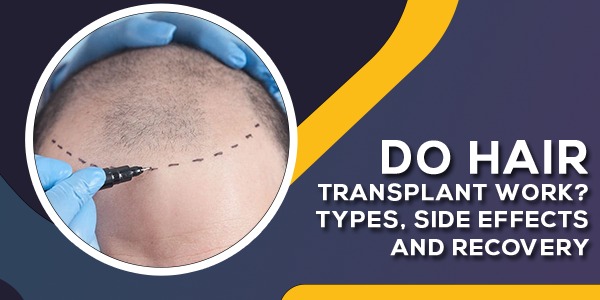Hair transplant is a clinical procedure where people facing the issue of balding or thinning hairs on the scalp are treated by taking hair from the thicker parts of the scalp, or other parts of the body and grafting them to the thinning or balding area of the body. Over time, mini- and micro-grafts are being used by surgeons to minimize the appearance of transplanted hairs on the scalp. You need to consult the surgeon to know about the procedure and Hair transplant cost in Raipur.
Do Hair Transplants Work?
The success rate of Hair transplant in Raipur is typically high. It is considered more successful than other hair restoration products.
But there are some factors that should be taken into consideration:
- It will take three-four months for transplanted hairs to fully grow, almost 80 per cent of transplanted hairs will grow back.
- Transplanted hairs will thin over time, just like normal hairs.
- Dormant hair follicles tend to be less effective than transplants. Plasma therapy can help with 75 per cent or more of the transplanted hairs to grow back fully.
Hair transplants may or may not work for everyone. This procedure is mainly used for restoration hair if you’re balding or thinning naturally. This procedure will work with lost hair due to an injury. There are various types of hair transplant procedures out there depending on your requirement you can go for FUT or FUE hair transplant in Raipur.
Most of the hair transplants are generally done with your existing hair, therefore they do not turn out to be as effective for treating people with:
- People with widespread thinning and baldness
- People facing hair loss as a side effect of chemotherapy or other medications
- People with thick injury in the scalp.
Hair transplant side effects
With every procedure, scarring comes along as a side effect. This cannot be avoided with any procedure.
Some other side effects that can be observed are:
- Bleeding
- Infections
- Drainage of pus around the surgical sites
- Pain, itching, and swelling on the scalp around the surgical sites
- Inflammation
- Loss of sensation around the surgical sites on the scalp
- Continued hair loss
Some medication involved in this procedure may also have side effects, such as:
- irritation on scalp
- dizziness and headache
- chest pain
- irregularity in heart rate
- swelling in some body parts such as hand, foot, or breast
Recovery
It may take several hours to days to get the procedure like FUT and FUE to complete. The time of procedure depends on the amount of work done on the area that is needed to be treated by the surgeons. You can go home the same day of the procedure.
On completion of the surgery, the surgeon will carefully remove any bandages. The treated area may be swollen, so to keep the swelling down, your surgeon may inject triamcinolone into the area. You may feel soreness or pain in the transplant site and the donor site. For the next few days some precautions are to be taken and some medications will be suggested, these are:
- pain medications are to be prescribed
- antibiotics are to be prescribed to prevent infections
- To relieve swelling some medicines also may be prescribed.
- Also, to stimulate hair growth after the procedure some medicines are to be taken by the patients.
Here are some aftercare tips for hair transplant surgery:
- After undergoing the treatment, you should not take bath immediately instead you should wait for a few days to let the treated area heal. Mild shampoos are to be used for the first few weeks.
- It will take 3-4 days to get back to your normal life routine and activities.
- You should not press a brush or comb down the newly grafted hairs for about 3 weeks.
- Avoid wearing hats or pullover shirts and jackets.
- Avoid doing heavy physical activities and exercise for a week.
You might observe hair fall after the procedure also. Don’t worry, It’s totally normal, and this is a part of the process. It will take a few months to get transplanted hair to merge with your natural hairs seamlessly.

